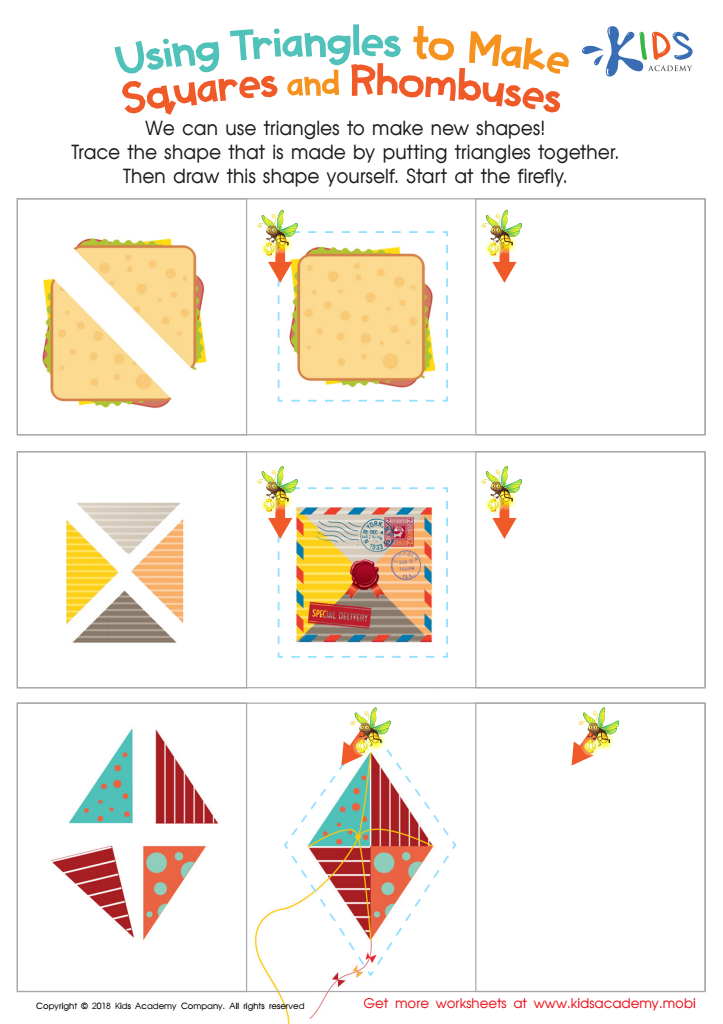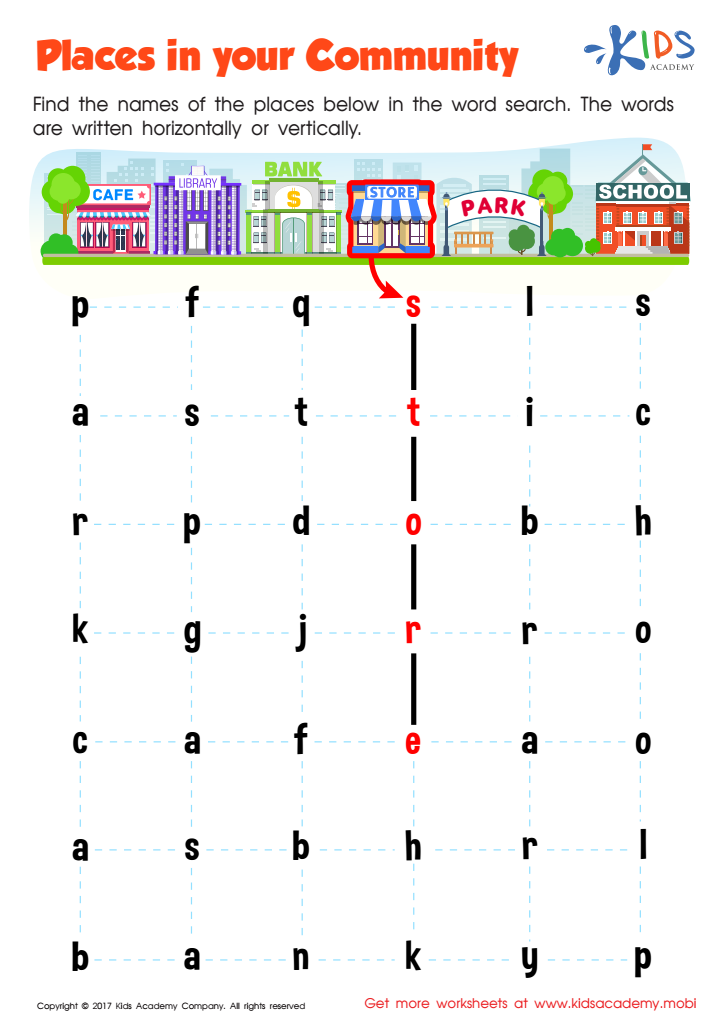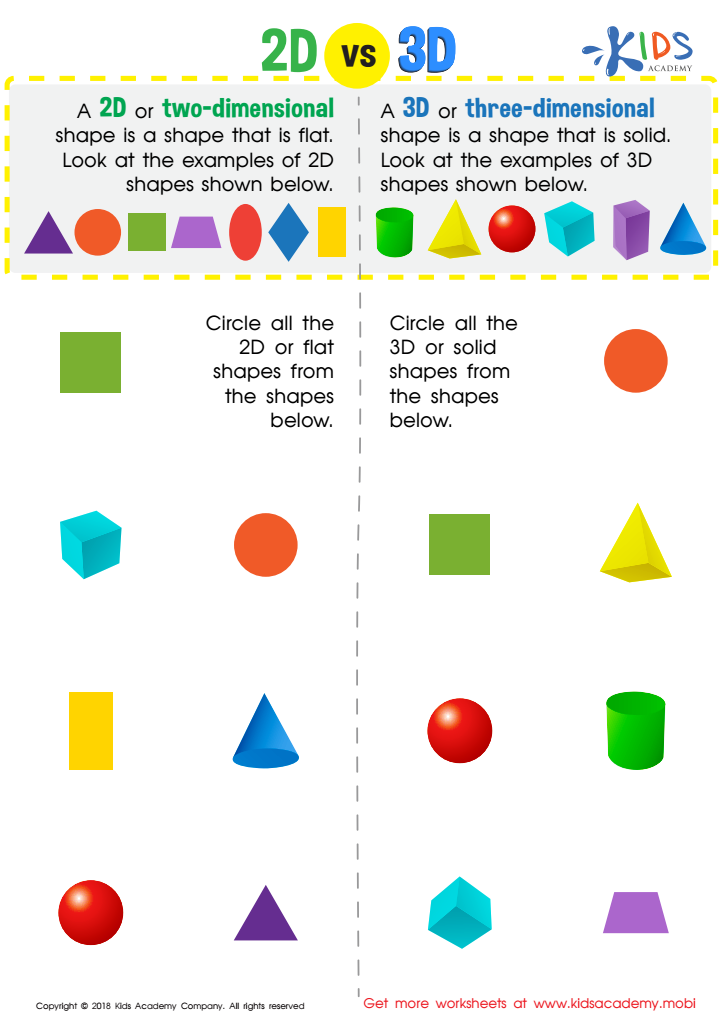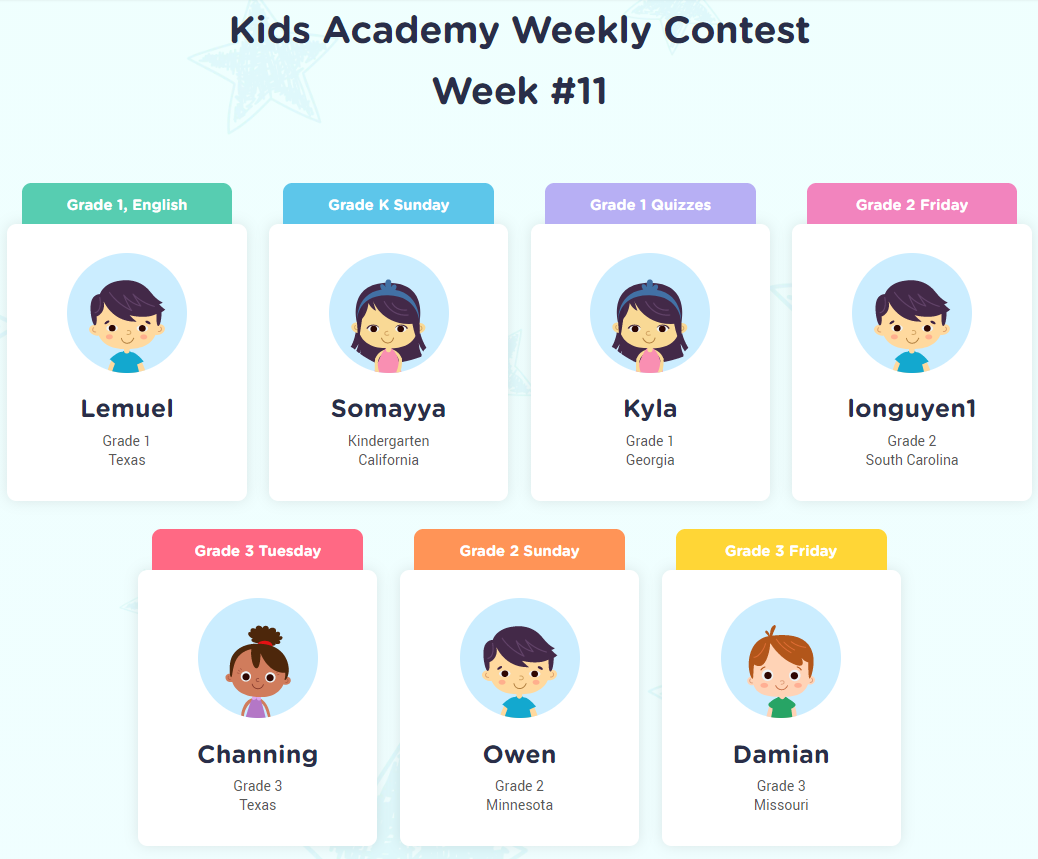Spatial understanding Normal Worksheets for Ages 4-8
3 filtered results
-
From - To
Explore our Spatial Understanding Normal Worksheets designed specifically for children aged 4-8! These engaging printable resources help young learners develop vital skills related to spatial awareness, enhancing their ability to think critically and solve problems. Featuring colorful illustrations and fun activities, these worksheets teach concepts such as directions, shapes, and positions in an interactive and enjoyable way. Ideal for home or classroom use, our worksheets cater to various learning styles, ensuring that each child grasps important spatial concepts. Foster your child’s growth with activities that make learning fun and effective—download our Spatial Understanding Worksheets today and watch their confidence soar!


Using Triangles to Make Squares and Rhombuses Worksheet


Places in Your Community Worksheet


2D vs 3D Shapes Worksheet
Spatial understanding is crucial for children aged 4-8, as it significantly influences their overall cognitive development and future learning abilities. At this age, children are developing the foundational skills necessary to navigate their surroundings, comprehend shapes and spaces, and understand concepts such as distance, direction, and measurement. These spatial skills are essential for success in various academic subjects, particularly in math, science, and geometry.
When parents and teachers nurture spatial understanding, they lay the groundwork for critical thinking and problem-solving abilities. Spatial reasoning helps children visualize and manipulate objects in their minds, fostering creativity and innovation. Children who excel in spatial awareness often perform better in tasks involving mathematics and engineering, fields increasingly vital in our technology-driven world.
Moreover, enhancing spatial understanding can also support fine and gross motor skills as children engage in activities like building blocks, puzzles, and outdoor play. These activities promote social interaction, teamwork, and physical coordination.
Ultimately, by prioritizing spatial understanding, parents and teachers are equipping children with essential skills for lifelong learning, encouraging exploration and curiosity, and preparing them for future academic and career opportunities. Early interventions can set these children on a path toward success in an increasingly complex world.

 Assign to My Students
Assign to My Students
















